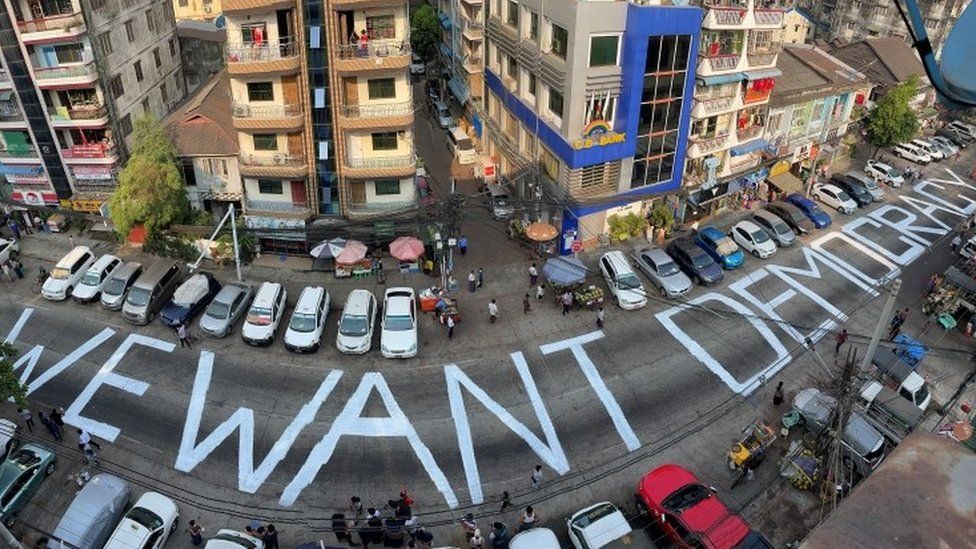
image copyrightReuters
The social media giant Facebook has deleted a news site run by Myanmar’s military, a day after two people were killed protesting against the coup.
Facebook said the Tatmadaw True News Information Team Page breached its rules prohibiting the incitement of violence.
The platform is the primary source of information and news in Myanmar.
Tens of thousands returned to the streets on Sunday to protest against the military’s takeover.
Demonstrators have rejected promises of early elections and are seeking the release of democratically-elected leader Aung San Suu Kyi and other members of her National League for Democracy (NLD) party.
The military allege the NLD’s landslide election win last year was fraudulent but have not provided proof.
In a statement Facebook said: “In line with our global policies, we’ve removed the Tatmadaw True News Information Team Page from Facebook for repeated violations of our Community Standards prohibiting incitement of violence and coordinating harm.”
The site is the main one run by the military, used to issue warnings to protesters and push its allegations about the election results.
The military’s leader Min Aung Hlaing and other top army chiefs are already banned from Facebook amid allegations of human rights abuses against Rohingya Muslims.
An estimated 22 million of the 54 million people in Myanmar use Facebook.
The population flocked to Facebook over the past decade as Myanmar’s economy liberalised, in part because unlike other big online portals Facebook supported Burmese script.
Protests show no sign of stopping
Across the country on Sunday protesters again took to the streets.
In the biggest city, Yangon, protesters held up portraits of Aung San Suu Kyi and wrote slogans demanding democracy in huge letters on the streets. Catholic nuns joined a protest outside the embassy of China, a key ally of Myanmar.
Many are honouring Mya Thwe Thwe Khaing, a young woman who became the first person to die in the protest and whose funeral is on Sunday.

image copyrightEPA

image copyrightEPA
The wife of prominent actor Lu Min said he had been arrested after posting a video denouncing the military leadership.
There has been widespread condemnation of the violence on Saturday, the worst since the coup happened at the start of the month.
The two fatalities occurred when police used live ammunition to disperse demonstrators in Mandalay.
UN Secretary-General Antonio Guterres condemned the violence in a tweet, saying: “The use of lethal force, intimidation & harassment against peaceful demonstrators is unacceptable.”

Myanmar – the basics
- Myanmar, also known as Burma, was long considered a pariah state while under the rule of an oppressive military junta from 1962 to 2011
- A gradual liberalisation began in 2010, leading to free elections in 2015 and the installation of a government led by veteran opposition leader Aung San Suu Kyi the following year
- In 2017, Myanmar’s army responded to attacks on police by Rohingya militants with a deadly crackdown, driving more than half a million Rohingya Muslims across the border into Bangladesh in what the UN later called a “textbook example of ethnic cleansing”
- Aung San Suu Kyi and her government were overthrown in an army coup on 1 February




